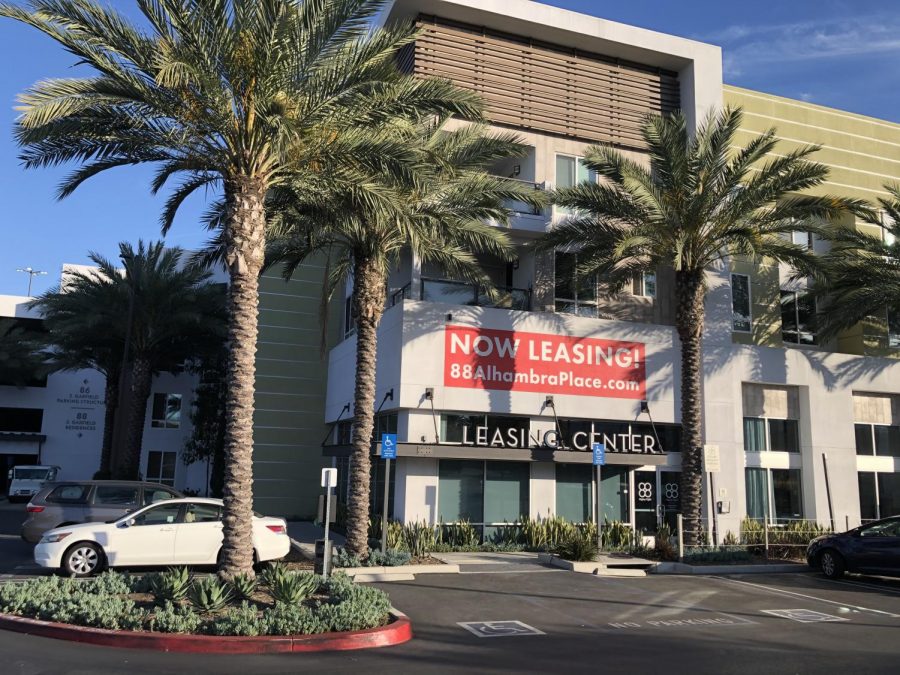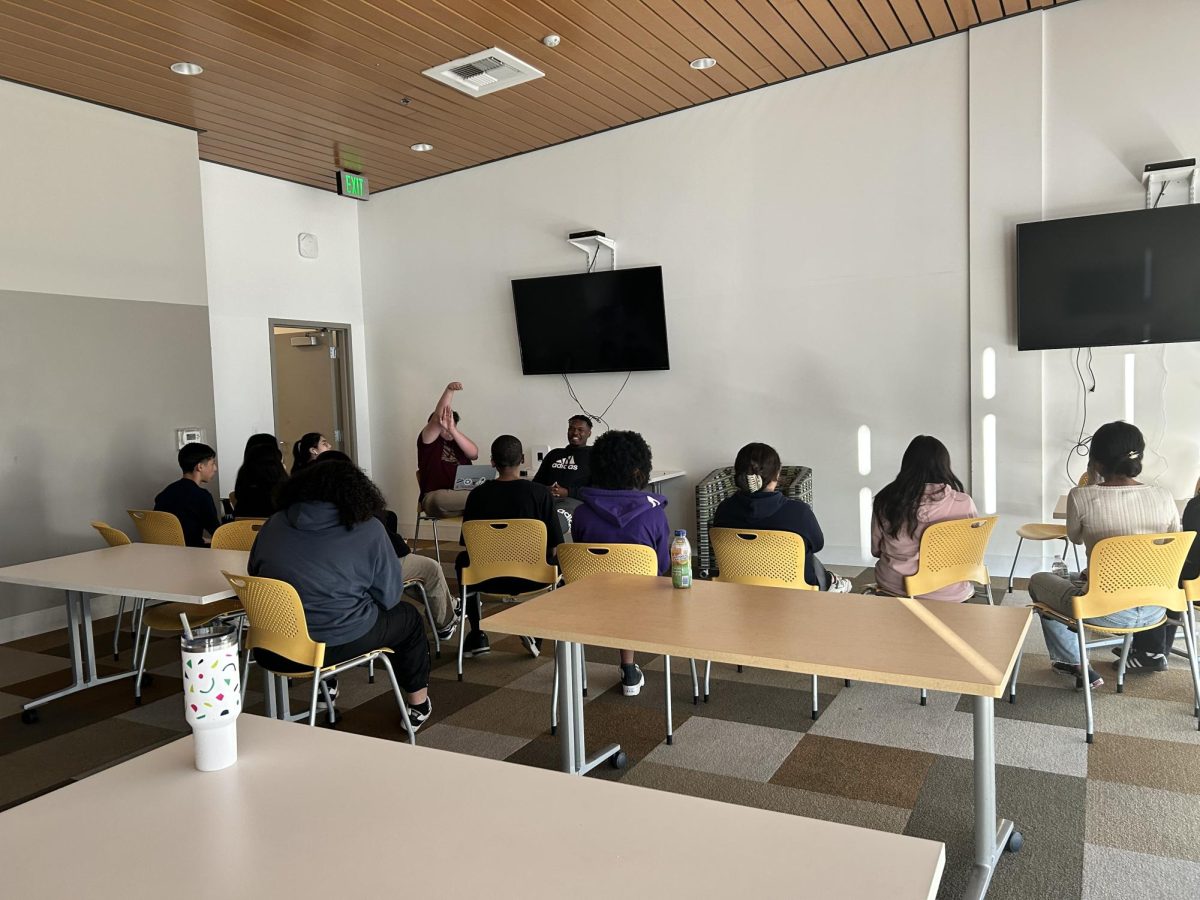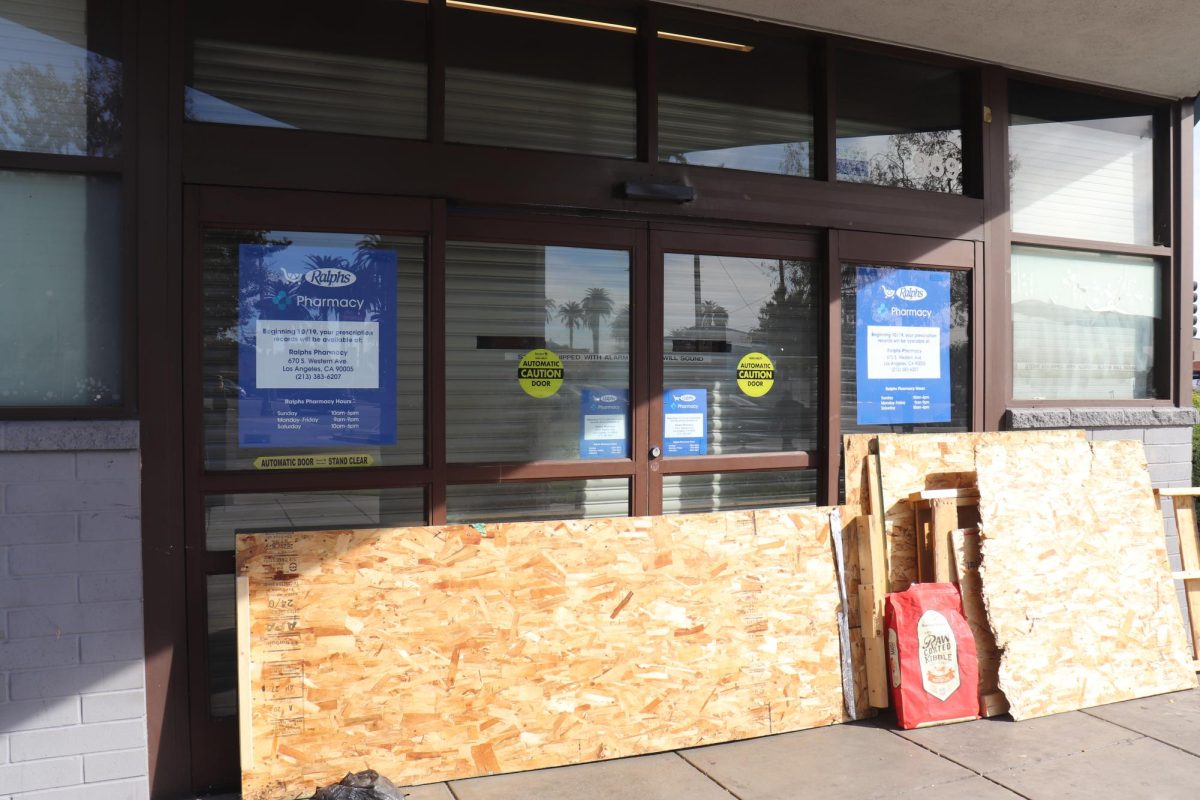Alhambra resident Laura Linares was barely making ends meet before the pandemic.
Now that she has been laid off from her job as an input coordinator, the situation is dire.
She told her apartment manager about being laid off.
“I’m not sure how long things are going to go. It might get worse,” she said.
“OK. Good luck,” the manager replied.
Linares said she doesn’t know what she’ll do.
“Literally, my paycheck alone after taxes was really only enough to cover my rent,” she said.
Unlike other cities in Los Angeles County such as Santa Monica, Inglewood and West Hollywood that have their own rent control laws, Alhambra does not. Considering sixty percent of Alhambra’s housing units are rentals, according to city documents, job losses due to the pandemic are hitting Alhambra residents pretty hard.
Meanwhile, some residents feel city officials aren’t doing enough to help residents with housing affordability. The city of Alhambra held a Facebook Live lottery to select 200 households to dole out federal emergency housing assistance funds, but some residents reported they didn’t know about it while others lacked the internet service or technology to tune in and enter.
At the same time, the vast majority — 326, or 90 percent — of 360 total permits approved for new units in Alhambra from 2013 to 2018 were for “above moderate” income levels, according to city of Alhambra records obtained by the University Times. Meanwhile, just 30, or 8 percent were for low-income units, and only four, or 1 percent of all permits are for “moderate-income” units.
Visualization created using data obtained from the city of Alhambra
City of Alhambra officials could not be reached for comment despite emails.
Linares moved from Pico Rivera to Alhambra in 2012 to be closer to her boyfriend at the time and because it seemed like a safe city to raise her son in.
When Linares first moved into her current apartment building, she was renting a one bedroom apartment for $950 per month. However, when her son started getting older, she started to look for a two bedroom apartment. In 2017, Linares saw a two-bedroom unit in her building available for $1,100 but it was rented out quickly and the next year, the rent went up to $1,300. It was again rented out before she could secure it. By the time the unit became available in 2019, the rent was $1,600, so Linares took it. However, she has seen the rent increase by $500 over the last three years.
Linares is currently living off of her tax refund money and also waiting for unemployment to kick in. But it’s unclear how long that will last. She had hoped to qualify for federal emergency housing assistance funds that she heard the city would distribute via a lottery system, but she was unclear how that would work. “I know there is a lottery thing coming up here in Alhambra, where they are going to choose…people to offer financial assistance to,” she said. The lottery happened earlier this month, allowing the city to give 200 grants of $500 each.
However, some residents said they didn’t know about it while others couldn’t participate because they don’t have proper internet service or a device.
When Karina Fuentes and her husband moved to Alhambra about ten years ago — in part for the excellent schools — she said they got a great deal: $1,400 monthly for a three-bedroom apartment for their family of five.
They now pay $1,780 per month because of rent increases over the years but she said they still consider that a really good deal because many people now spend that much for a one-bedroom in Alhambra.
Fuentes said she suspects rent hikes in Alhambra are related to housing prices soaring in neighboring areas such as South Pasadena: “If there was rent control, it would make it better for families.”
Community News reporters are enrolled in JOUR 3910 – University Times. They produce stories about under-covered neighborhoods and small cities on the Eastside and South Los Angeles. Please email feedback, corrections and story tips to [email protected].



















Jerry Bullard • Dec 6, 2020 at 4:26 am
Rental prices are only TOO high when a unit sits empty. As long as someone is willing to pay it, then the prices are fine.
If you can’t afford living somewhere, then move. If you’re making minimum wage, that’s on you and you should have no expectation of being able to afford your own place. If you have kids you can’t afford, that’s on you for poor planning.
Alma • May 30, 2020 at 11:35 pm
Landlords are major contributors to homelessness. Why do they gauge up rent knowing many families single mom households and middle age women and men struggle just to pay for a roof over their head?
G R E E D ! I’m looking for a studio and I cant believe the amount they’re asking
not to exclude the ridiculous credit check fee that’s nothing but BS. Why check your credit? It’s not like you’re buying the space. Then some rentals want 1st , Last and security deposit I mean its endless. They make it very hard and almost makes one feel hopeless when you’re making just minimum wage. GREED NEEDS TO STEP DOWN FROM THEIR IVORY TOWER and get in the real facts of life. Look around you, everywhere you turn theres a homeless man maybe in his 40’s or 50’s what’s his story ? lost his job ? Fell into depression and what about the homeless women? I see them numbers growing. It broke my heart the other day I was walking on main and hidalgo where a woman looked like she was in her early to mid 30’s laying on the sidewalk sprawled out as if life itself has rejected her too. What’s her story?
I was homeless too for 6 years working seasonal nowhere jobs I lost everything I worked for .
48 years of my life was stored up in a 5 x 7 storage. and now before the Grace of God I finally have a permanent full time job I can finally move out of a hot room that felt like an oven during the summer and like an ice box in the winter.
I had to put up with the woman I rented from and finally I have saved enough to move out with hope to find me a place to call my own. But as I search all I see is
G R E E D!! Rentals from a bedroom to a studio and a 1 bedroom apt. Is ABSURD!!! There needs to be some kind of rent control . Sure inflation gone up but what about those who have more than 2 units charging $1000 for a studio just enough space to fit a bed and a night stand then they dont want you to have a pet or visitors after certain hours, curbside parking hell why not just put up iron bars and put me on lockdown. $1850- $ 2500 a month for 2 bedroom
Employers dont want to pay the cost of inflation heck they dont want to pay insurance. All the roads point
G R E E D.
Landlords are A MAJOR CONTRIBUTOR to homelessness that’s a known fact. Look up the rentals checkout the BS amount they’re asking for one room (shared bathroom) a studio and 1 bedroom. Look up what they dont want in their property that theyre charging you $$$$ just to have aroof over your head. Oh, and all these landlords upgrading the apartments to ” luxury” in a city where people struggle why on earth would they make such an upgrade when apartments should always be up-to- date to begin with. They let their property go to shit neglecting it then when they get cited by the city for their negligence then the get their property refinanced and make up part of their losses by charging up to 50.00 for credit check. Per app.
UN – F N BELIEVABLE!! If our Governor , Mayor, councilman/ woman does nothing to help the people who elected them into office there will be angry citizens who will be ready to riot . People do get fed up.
Sergio • May 28, 2020 at 10:53 am
Blessings and prayers for all our Alhambra residents and all of us struggling through these difficult times. Tough times don’t last but tough people do. We need to reopen our economy and get people working safely again asap. Rent control is not the answer, good jobs and a strong economy is always a better option. Praying for all.
Scott • May 28, 2020 at 10:03 am
if there you were friendlier people living there then there would have been helping hands but the place is crowded with really stuck up people. Let them suffer
Ken ng • May 27, 2020 at 7:08 pm
The Rent in Alhambra way too high !!! Many families can’t afford. The CITY needs to doing something about Rent must be control can not be allowed rent freely keep going up !!! It’s must stop at some point !!!!
Christopher • May 27, 2020 at 2:10 pm
foodnotrent.org
If you have lost income due to COVID-19, save your money for food. You cannot be evicted at this time for inability to pay rent and your landlord must allow you up to one year to pay back rent after the state of emergency has been lifted. But we need to go further than this and demand total rent cancellation. Otherwise we will be putting people into further debt and eventually leaving many on the streets. It’s time to put people over profit.
J • May 27, 2020 at 1:00 pm
The rent increase is justified due to inflation. Per the BLS CPI inflation calculator, https://data.bls.gov/cgi-bin/cpicalc.pl, the increase over ten years is in line with inflation (keep in mind that the CPI does not include factors such as the cost of gasoline, among other essentials, and the high cost of living in L.A.). The landlord must, at the very least, keep up with inflation in order to sustain the business and property value (since part of the value is based on rental income). I am not a landlord; however, I understand that rental property is a business. For some owners, the property may be their sole income.
Carlos Baldelomar • May 27, 2020 at 10:30 am
Alhambra should help his residents, by having, rental control, it’s to much, rent are in the skies, and who benefits the landlord and the middle person who raises as he wants ( landlord, middle person and renters).
Jack • May 26, 2020 at 11:27 pm
Rent control is not the end all be all solution to this issue, and has the potential to have adverse consequences from the intended result. Rent control does not apply to units that were vacated, and the rent of the unit in question had the rent raised by market value after the unit was vacated. In Linares’s case, had she been able to rent the $1100 unit at that point in time would only see yearly rental increases as stipulated by the County’s rent control regulation of 8% (cities can only have their own rent control regulation if they propose a stricter amount, I believe LA has 5% cap). The way to lower rent is to increase supply of rental units to make the market competitive, as well as, having the City of Alhambra increase the number of units for moderate to low income earners. I believe making rental units rent controlled will remove incentive for landlords and developers to upkeep, upgrade and build new units. Not building new units will exacerbate the current rental cost issue.
Carmen Vela • May 26, 2020 at 9:38 pm
Yes Alhambra Rents are very high we all need help paying our rent how do they expect people to live with everything going up please we need help
Thank You
Carmen Vela
Richard Moreno • May 26, 2020 at 9:18 pm
We need rent control in the city of Alhambra